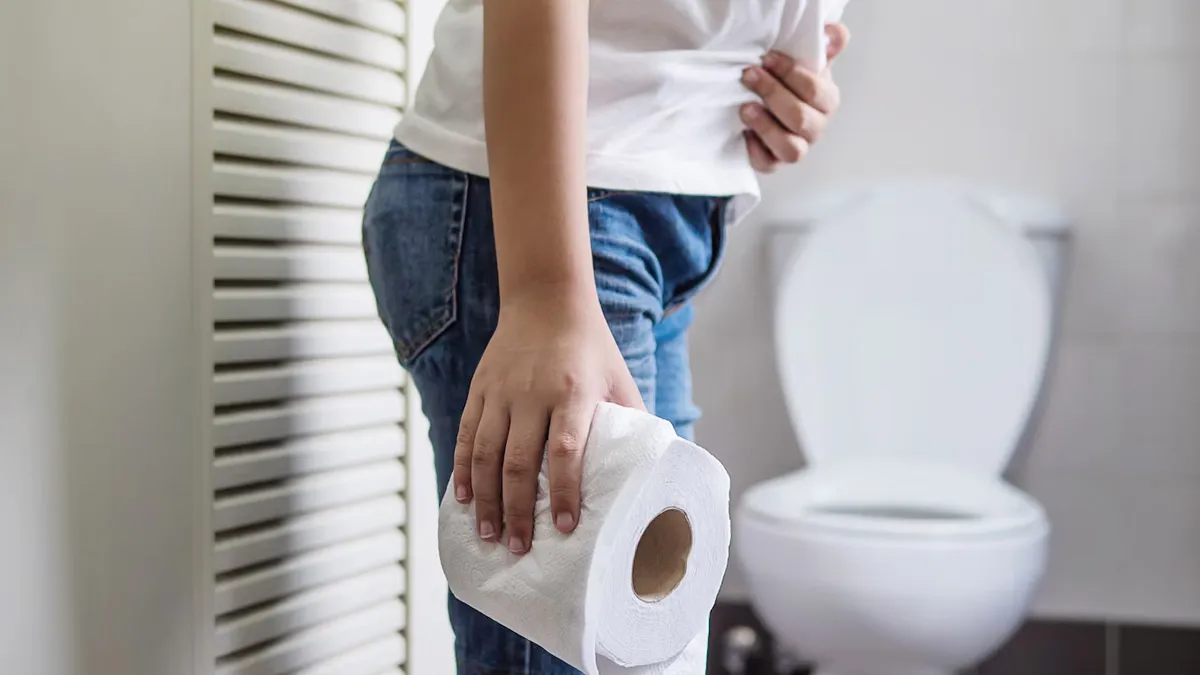
Constipation is defined as having fewer than three bowel movements in a week. But it is not only the number of stools, it is also what happens during and after passing stools, such as hard or dry stools, excessive straining, difficulty passing stools and feeling as if the bowel movements are incomplete. For most, it is a temporary situation, but for some, it is a long-term condition impacting their life and well-being.
Table of Content:-
We spoke to Dr Bhuvan Shetty, Consultant Medical Gastroenterologist and Hepatologist, Gleneagles BGS Hospital, Bengaluru, who explained the impact of constipation on gut health.
Causes of Constipation
There are many lifestyle and medical causes of constipation.

- Low fibre diet, inadequate fluid intake and sedentary lifestyle are common causes.
- Certain medications like opioids, antidepressants, iron supplements, and antacids can slow down bowel movement.
- Moreover, medical conditions, such as hypothyroidism, diabetes, Irritable Bowel Syndrome (IBS), and neurological diseases like Parkinson’s, can contribute to chronic constipation.
When Should You Worry?
Constipation occurring occasionally may not be a cause of concern or raise alarm bells. However, if it becomes chronic or is accompanied by other symptoms, it should not be ignored. It can be an early sign of more serious health problems, including:
- Colorectal cancer
- Obstruction in the bowel
- Neurological disorders
- Hormonal imbalances
Also Read: When Gut Issues Stem From The Spine: Expert Explains Viscerosomatic Reflexes
Impact of Constipation on Gut Health
“Other than being uncomfortable, constipation can physically harm your digestive system. Repeated straining can cause haemorrhoids, anal fissures, and in extreme cases, rectal prolapse. Build-up of stool in the colon can also cause a dangerous condition known as faecal impaction, which may necessitate emergency medical attention,” said Dr Shetty.
But indirectly, the longer the waste lingers in your colon, the more water and toxins are able to get reabsorbed back into your system, leading to fatigue, brain fog, and even poor skin health.
The Hidden Effects: Beyond the Gut

Other than its effect on the digestive tract, the discomfort due to constipation leads to headaches, poor sleep, irritability, and even anxiety. Many research studies have shown that chronic constipation and mental health are linked through the gut-brain axis, a communication network linking your gut and brain.
What this implies is that if your bowel is not functioning, it can impact how you feel emotionally and cognitively. Likewise, stress and anxiety can worsen constipation, creating a vicious cycle. A comprehensive 2024 review identified chronic constipation as a symptom in patients with anxiety and depression. Dysregulated gut/brain communication through Corticotropin‑Releasing Factor (CRF) pathways, and microbial alterations, are potential reasons for changed bowel habits and disruption in mood.
The Gut Microbiome Connection
There are trillions of bacteria living in our gut that help with digestion, the immune system, and even brain health. "This sensitive microbial ecosystem is disrupted by chronic constipation, killing off the good bacteria and letting the bad ones proliferate. This imbalance can then clog up digestion further, cause inflammation, and raise your risk for diseases, such as Small Intestinal Bacterial Overgrowth (SIBO)," added Dr Shetty.
Also Read: Gastroenterologist Reveals Foods To Avoid For Bloating, Constipation, And Diarrhoea
How to Relieve and Prevent Constipation
Many cases of constipation can be managed or prevented effectively through lifestyle and dietary changes. Here’s what the expert suggests:

- Eat more fibre: Include fruits, vegetables, whole grains, legumes, and nuts in your diet.
- Stay hydrated: Aim for at least 2-3 L of water daily to help soften stools.
- Exercise regularly: Physical activity stimulates intestinal contractions. It doesn't have to be a long walk every day to make a big difference.
- Don’t ignore the urge: Delaying a bowel movement can worsen constipation. Establish a routine.
- Use probiotics: Foods like yoghurt, kefir, and fermented vegetables can support a healthier gut microbiome.
Medication
When lifestyle changes are not helping, fibre supplements, stool softeners, or laxatives can provide temporary relief. However, these should be used cautiously and under medical guidance. Long-term use of laxatives can cause dependency and reduce the natural ability of the colon to move waste.
When to see a Doctor
- Constipation is a new problem for you
- You see blood in the stools
- Losing weight unintentionally
- Severe pain while passing stools
- Constipation has lasted more than three weeks
Bottomline
Dr Shetty concluded, “Constipation isn’t just a minor digestive glitch; it’s your body’s way of communicating that something might be off. By paying attention to your gut, adopting good lifestyle habits, and getting medical attention on time when necessary, you can not only alleviate constipation but also prevent long-term complications and enhance your quality of life.”
[Disclaimer: This article contains information provided by an expert and is for informational purposes only. Hence, we advise you to consult your professional if you are dealing with any health issue to avoid complications.]
Also watch this video
How we keep this article up to date:
We work with experts and keep a close eye on the latest in health and wellness. Whenever there is a new research or helpful information, we update our articles with accurate and useful advice.
Current Version